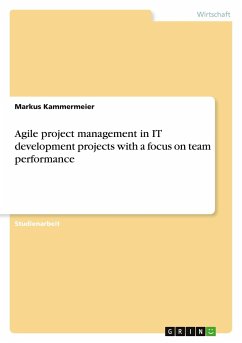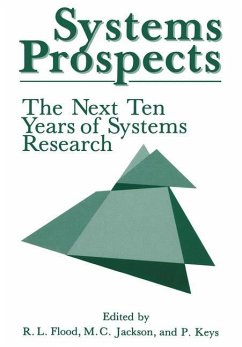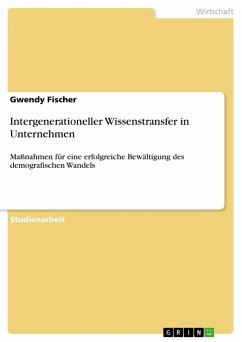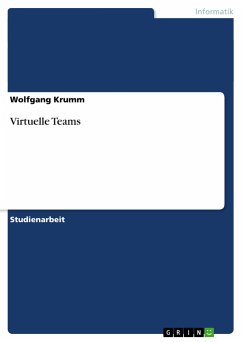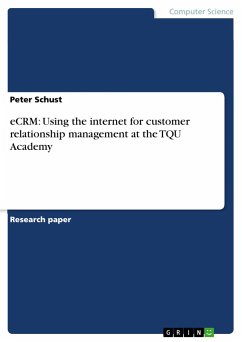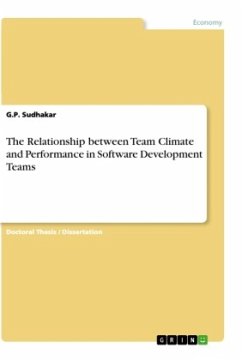
The Relationship between Team Climate and Performance in Software Development Teams

PAYBACK Punkte
0 °P sammeln!
Doctoral Thesis / Dissertation from the year 2012 in the subject Business economics - Information Management, grade: 8.5, Aligarh Muslim University (Dept. of Business Administration, Faculty of Management Studies and Research, AMU), course: PhD (Business Administration), language: English, abstract: Research Question: I started with research questions such as what makes software teams more productive?, How team innovation is related to team performance?; and Does team climate impact team productivity, innovation, and performance in software teams? Research Objective: is to develop a conceptual...
Doctoral Thesis / Dissertation from the year 2012 in the subject Business economics - Information Management, grade: 8.5, Aligarh Muslim University (Dept. of Business Administration, Faculty of Management Studies and Research, AMU), course: PhD (Business Administration), language: English, abstract: Research Question: I started with research questions such as what makes software teams more productive?, How team innovation is related to team performance?; and Does team climate impact team productivity, innovation, and performance in software teams? Research Objective: is to develop a conceptual model of team performance using factors such as team climate, team productivity, and team innovation. Objective is to observe different dimensions of these variables with respect to respondents' age, gender, educational qualification and experience; team role and team size. Objective is to find the relationships between variables: team climate and team productivity, team innovation & team performance. Research Methodology: Based on literature review, a conceptual/structural model is drawn with team climate as independent variable (comprising sub-factors such as vision, task orientation, support for innovation and participative safety ), team performance as dependent variable and team productivity and team innovation as intermediate variables. Respective hypotheses are defined. Data is collected using a questionnaire from 178 valid respondents from 18 software development teams of 6 organizations. Team sizes range from 2 to 18 members. Respondents include designers, architects, programmers and software engineers and team managers. Findings: Findings include respective team member role has impact on team climate, vision and task orientation. Team size effects task orientation, support for innovation, participative safety, team productivity, and team innovation. Vision strongly correlates to team performance. Support for innovation strongly correlates to team innovation. Vision and task orientation have no relationship to team innovation. Participative safety is not related to team productivity. Task orientation is not related to do team performance in software development teams. Recommendations: Software organizations have to focus on objectives, vision and support for innovation for better team performance. To make the teams more innovative, they need to focus on vision, participative safety and support for innovation in software teams. For better productivity, they need to concentrate on team vision and task orientation.




